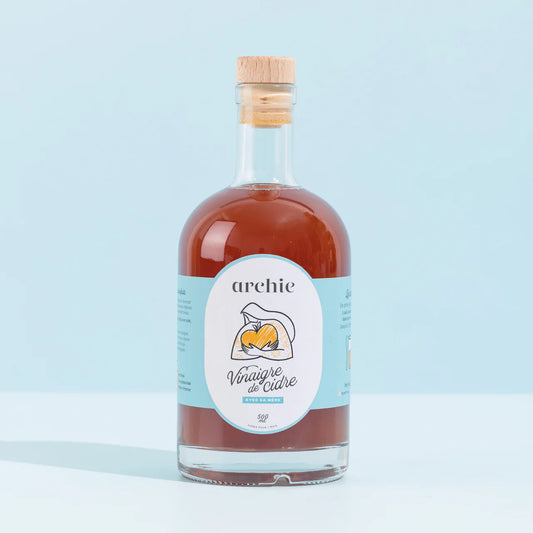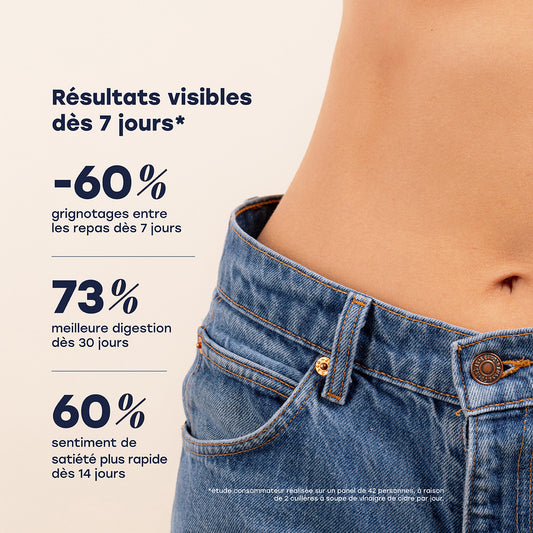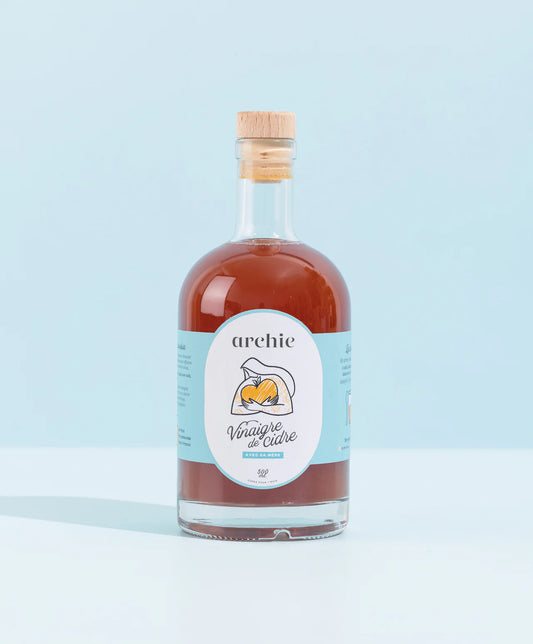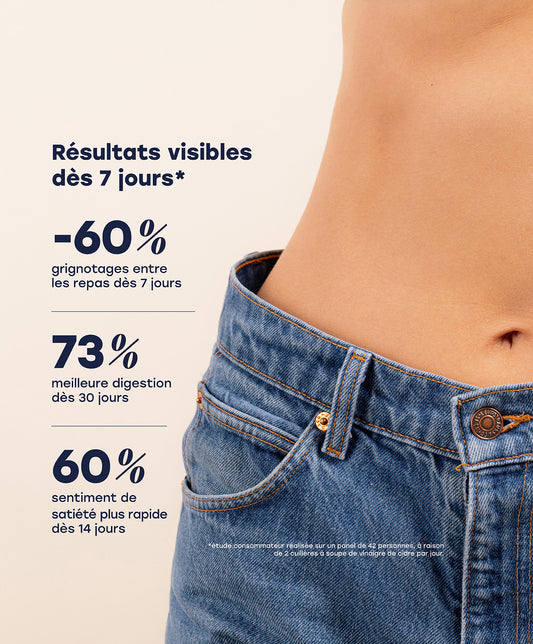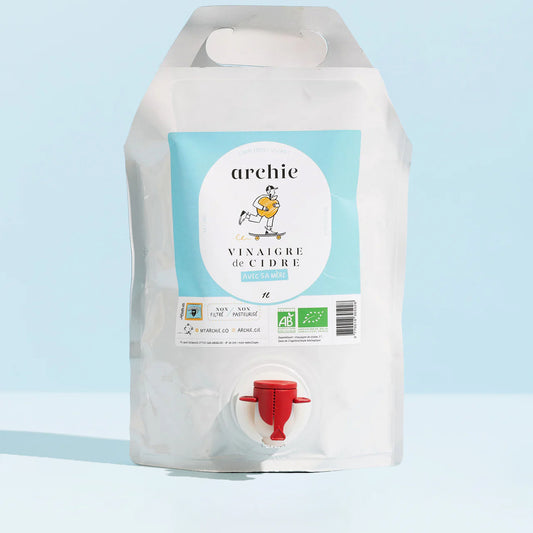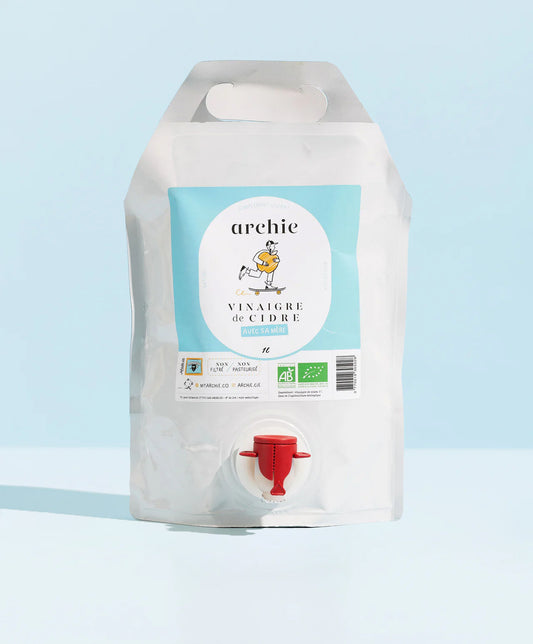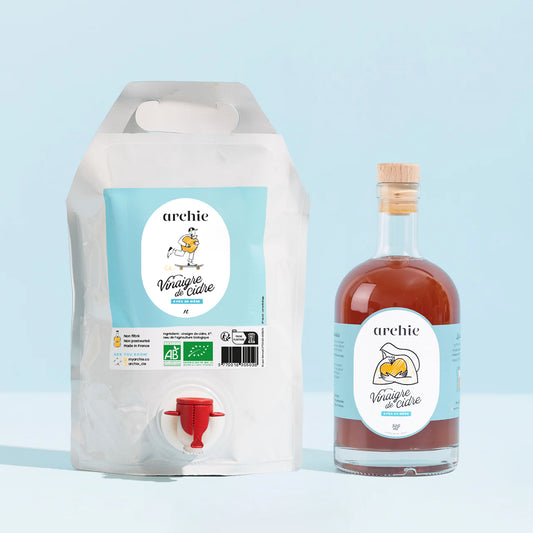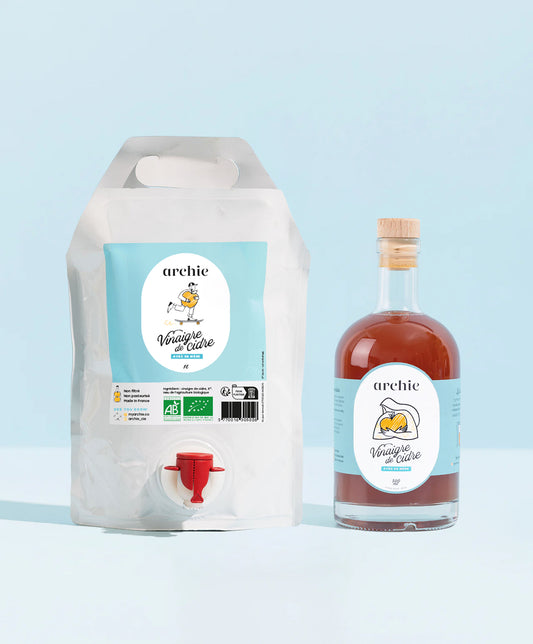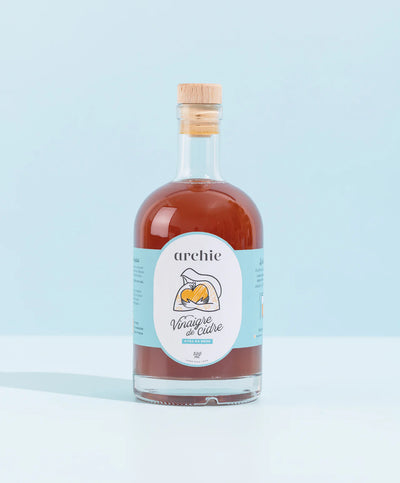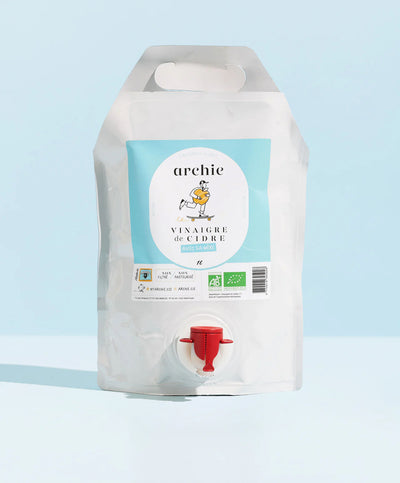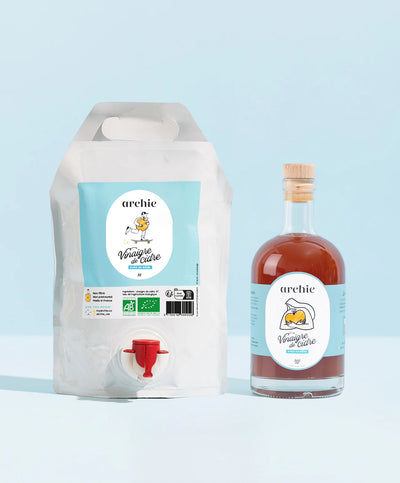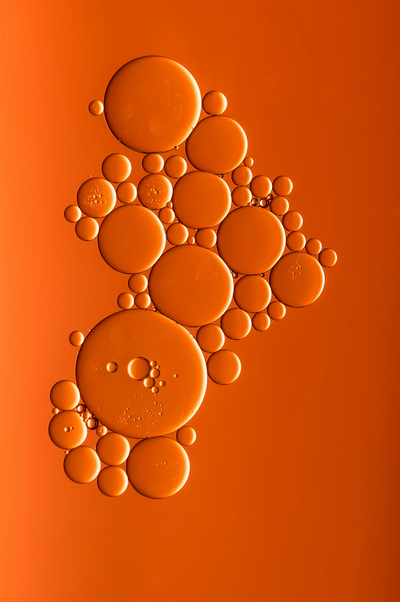Insulin spikes, fatigue, glycemic index, types of sugars... Help! Are you lost in the blood sugar stories? Why should you pay attention to your blood sugar, and especially how?
As for the why, we'll tell you everything below. As for the how, Archie is here! But that's not all. Explanations.
A little glycemic overview
First, let's start from the basics: blood sugar corresponds to the quantity of sugar, glucose, present in our blood.
Sugar, which comes from food, passes from the blood into the cells of our body under the action of insulin, a hormone secreted by the pancreas.
When a large amount of sugar suddenly enters the bloodstream, a surge of insulin is secreted to allow the excess sugar to quickly enter the cells. Indeed, too much glucose in the blood is harmful for many reasons, which we will see below; the pancreas therefore keeps a close eye on things to keep the level in the blood stable.
When you say insulin spike, you say fuel spike and energy spike. It also means rapid dopamine release. So, it's a pretty rosy picture, seen that way. But unfortunately, the story doesn't end there.
Indeed, this insulin spike, which suddenly causes blood glucose to enter our cells, is then accompanied by a lack of blood sugar. We're going around in circles, yes. This is the famous reactive hypoglycemia , and the energy slump that goes with it. So you understand why eating an overly sugary breakfast is accompanied by a late-morning energy slump. And then, what do we tend to do? Eat sugar. And there we go again, insulin spike, and you know the rest. So we have alternating energy and fatigue, and we put a lot of strain on our pancreas.
To avoid this endless cycle, let's avoid sudden surges of sugar! To do this, refined sugar should be avoided, of course, but many other foods cause a rapid increase in blood glucose and therefore insulin spikes. Which ones?
This is where we talk about the glycemic index. This value, between 0 and 100 (0 for white fish and 100 for white sugar), indicates the food's ability to raise our blood sugar levels.
Every food has its own glycemic index, often referred to as the GI. But that's not all, luck or bad luck, this index is also modified depending on how the food is prepared, as well as how it is combined. For example, fiber and lipids absorbed at the same time slow down the absorption rate of sugar, and therefore the glycemic index of a food. This is why a plate of pasta will have a lower GI if it is drizzled with olive oil. So lucky, we suspected it!
This is also why eating whole fruit (with all the essential fiber it contains) won't cause the same blood sugar spike as drinking fruit juice, no matter how fresh. And drizzling a dash of olive oil over your fruit juice? There you have it!
High blood sugar: the root of many diseases
So, we want to avoid these insulin spikes. For the reasons mentioned, but also because, over time, asking our pancreas for unrestrained secretions exhausts it. Asking our cells to ingest too much sugar also exhausts them. Through exhaustion, they can organize a resistance, insulin resistance. This resistance that sets in, on one side or the other, is called type 2 diabetes. This type of diabetes (which is acquired, unlike type 1, an autoimmune disease) is expected to be the 7th leading cause of death in the world by 2030, according to a study published by Dr. Robert Lustig in the book Sugar, the Bitter Truth.
And the harmful effects of too much glucose in the blood don't stop at diabetes. Obesity, which can result from sugar being removed from the blood too quickly and therefore stored as fat—triglycerides—instead of being used as fuel, is one consequence.
But also, brain health. Research at a Rhode Island hospital in the United States has shown that neuronal cells can develop insulin sensitivity , and scientists have even renamed Alzheimer's disease type 3 diabetes.
Behavioral changes, decreased cognitive abilities, mood swings, and impulsiveness are also on the list of harmful effects of high blood sugar on the brain.
Excess sugar is also a leading cause of aging and cancer. Glucose in the blood binds to proteins and fats to form glycated proteins, which are responsible for hardening artery walls, narrowing brain tissue, damaging joints, as well as oxidative stress and chronic inflammation. Cancer cells are also fueled by sugar. But what is glucose ?
Let's stop there, you understand, it is more than essential to take care of our blood sugar levels.
Acetic acid, the secret of apple cider vinegar to regulate your blood sugar
Beyond the nutritional advice to follow to monitor our blood sugar levels (knowledge of GIs, avoiding refined sugar, preparation methods, quantity, combinations, etc.), we wanted to tell you about an ingredient: acetic acid!
Why? Because apple cider vinegar contains it, and research shows it helps lower blood sugar levels!
American publications from the last 10 years have informed us about the impact of ingesting acetic acid during a meal and its multiple benefits: when the acid is ingested at the same time as food (the effects are not, however, conclusive for ingestion 5 hours before), it lowers blood glucose levels in the hours that follow - compared to the same meal taken alone. It therefore allows blood sugar levels to be lowered, but also the amount of insulin measured.
This experiment has been validated in the same way in people with diabetes as in people without diabetes.
Another important point: studies also show an increase in satiety when the dish is accompanied by this dose of acetic acid contained in vinegar. And greater satiety means fewer sugar cravings.
When eating a meal containing carbohydrate-rich foods—we'll only mention the healthiest ones so as not to give off any bad ideas: sweet root vegetables, fruits, whole grains, legumes, etc.—it's a good idea to add a dose of Archie vinegar. Less hunger, less blood glucose, less insulin secretion, hallelujah!
The ideal dose? 10g of cider vinegar, or 2 teaspoons.
Be careful, though, we can already see you coming: Archie as reinforcements, okay, but we'll abandon the idea of preparing a meal made from a packet of candy. The effect is all the stronger because the carbohydrates are complex and less monosaccharides, those simple sugars found in industrial products, among other things. So we don't take advantage of it to swallow twice as much. Everything goes in the same direction in the end, life is well done Archie!
*To date, there are no published French scientific studies on the benefits of apple cider vinegar. To address this information gap, Archie has formed a Scientific Committee dedicated to providing the greatest possible transparency regarding the benefits of apple cider vinegar.







